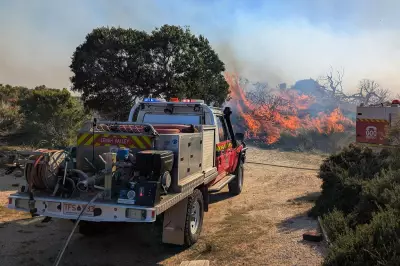
In a powerful reflection on Australia's changing environment, Noongar woman and legal expert Emma Garlett has voiced deep concerns about what shifting seasonal patterns mean for the country's future. Drawing from her cultural heritage and professional background, Garlett suggests these environmental changes represent the land communicating its distress.
The Land Is Speaking: Are We Listening?
Emma Garlett, a prominent Indigenous voice in Australian commentary, emphasizes that traditional Noongar knowledge has long recognized six distinct seasons rather than the conventional four. These Indigenous seasonal markers are becoming increasingly difficult to identify as climate patterns shift unpredictably. The disruption to these ancient natural cycles suggests the land is under significant stress from human activity and environmental changes.
As a lawyer with expertise in native title and environmental law, Garlett brings both cultural and professional perspectives to the discussion. She notes that her ancestors developed sophisticated environmental knowledge over thousands of years, knowledge that modern Australia largely ignores at its own peril. The changing flowering patterns of plants, altered animal behavior, and unpredictable weather events all signal that traditional ecological systems are being pushed beyond their limits.
Cultural Wisdom Meets Contemporary Science
Garlett's commentary highlights the growing convergence between Indigenous knowledge and Western scientific understanding of climate change. Both perspectives now recognize the accelerating pace of environmental transformation across the Australian continent. What Indigenous communities have observed through generations of intimate land connection now finds validation in climate data and ecological research.
The author points to specific examples where traditional seasonal indicators are no longer reliable. Plants that once flowered at precise times now bloom unpredictably, while animal migration patterns have become disordered. These changes disrupt not only ecosystems but also cultural practices tied to seasonal cycles, threatening the continuity of Indigenous knowledge systems that have sustained both people and country for millennia.
Toward a More Sustainable Future
Emma Garlett's perspective offers more than just criticism—it provides a pathway forward. She advocates for greater incorporation of Indigenous knowledge into environmental management and policy development. This approach would represent a significant shift from current practices, recognizing the value of deep cultural connection to country in addressing contemporary ecological challenges.
The legal expert suggests that listening to the land means acknowledging when natural systems are stressed and responding with appropriate care and respect. This requires moving beyond short-term economic considerations to embrace long-term sustainability principles that have guided Indigenous land management for thousands of years. As climate change intensifies, this wisdom becomes increasingly valuable for all Australians.
Garlett's commentary serves as both warning and invitation. She calls for genuine dialogue between Indigenous knowledge holders and policymakers, emphasizing that the health of the land directly correlates to the wellbeing of all who depend on it. The changing seasons represent not just an environmental crisis but an opportunity to rebuild relationships with country through respect, listening, and appropriate action.





